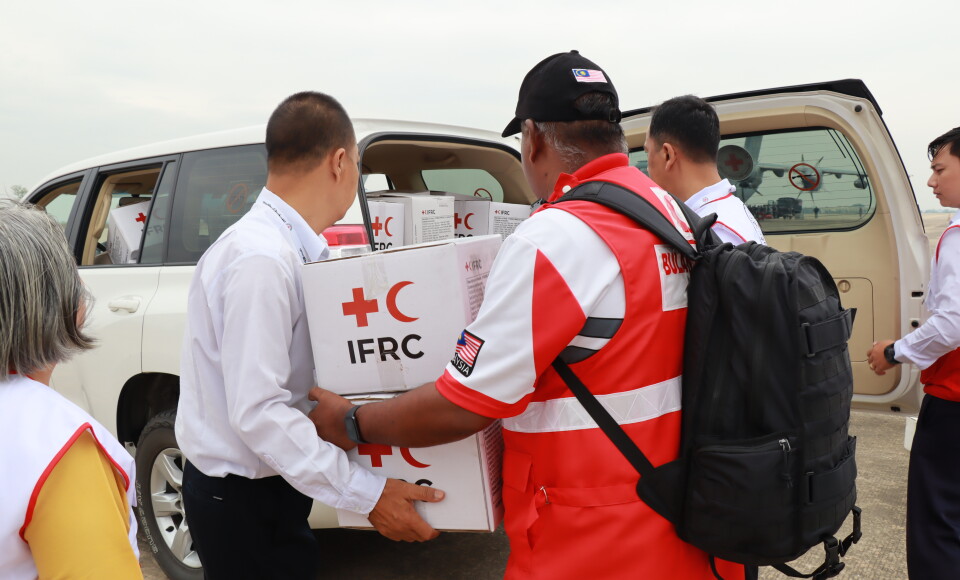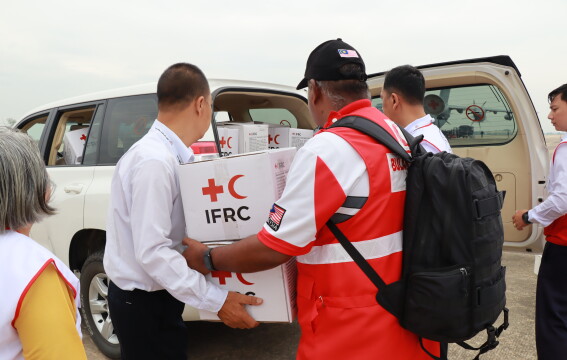Global humanitarian funding is everyone’s concern
11 April 2025


As the consequences of the disastrous earthquake in Myanmar unfold, we are aware that the global landscape of humanitarian assistance funding is rapidly changing.
Our Secretary General, Sarah Stuart-Black, writes here about the impact of those changes.
The humanitarian aid ecosystem has been heavily dependent on state funding from mainly Western countries for a long time, but a new era of uncertainty is dawning as countries such as the United States of America and the United Kingdom change their approach and decrease, pause or withdraw funding.
In New Zealand, we are watching the effects of these changes on funding in the Pacific and elsewhere very closely. Alarmingly, this swing comes at the same time as climate-related disasters continue to increase in number and severity, such as last year’s typhoon and current heatwave exacerbating the response in Myanmar.
There were more than 150 climate-related disasters around the globe in 2024 and the International Committee of the Red Cross reported last year there were 120 armed conflicts.
Liana Ghukasyan, of the International Federation of Red Cross and Red Crescent Societies (IFRC), recently described the cuts in foreign aid as sending “shockwaves through the global aid system”. It is creating a sector-wide crisis, she said, and threatens the humanitarian system.
If international assistance is significantly reduced, the safety net that swings into action in conflict zones and in response to large-scale emergencies will be severely impacted. As a Red Cross National Society and member of IFRC, we know the resulting humanitarian impact would be immense.
The scale of the current crises in Gaza, Ukraine, Sudan, the Democratic Republic of Congo and so many more, demand a global response. How we collectively and sustainably fund humanitarian emergencies is now an increasingly urgent question.
As we face rising numbers of people in crisis, in New Zealand and around the world, it’s likely our organisation, and other non-profit organisations, will be needed more than ever to fill the gap.
More information
- Learn more about what we do in New Zealand.
Our work in New Zealand - In times of disasters, conflict, and other emergencies, we respond to the needs of vulnerable people around the world.
What we do overseas - Donate to support our work, including responding to emergencies, helping former refugees resettle, and delivering meals to people who can’t cook for themselves.
Donate to where the need is greatest - Business partnerships are critical to our work helping people in New Zealand and overseas. Explore different ways your business can support our work and make an impact.
Partner with us
